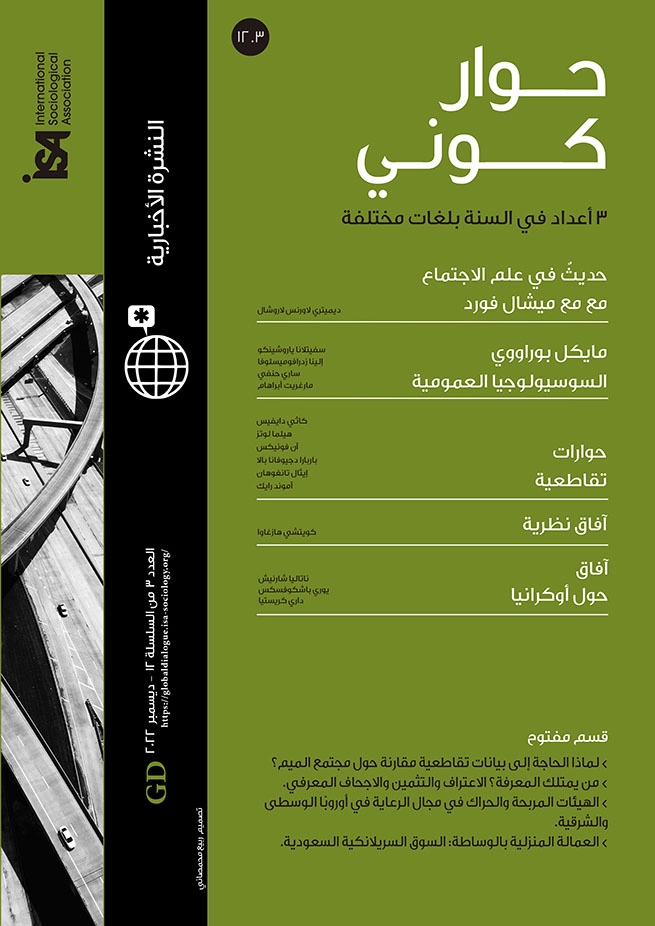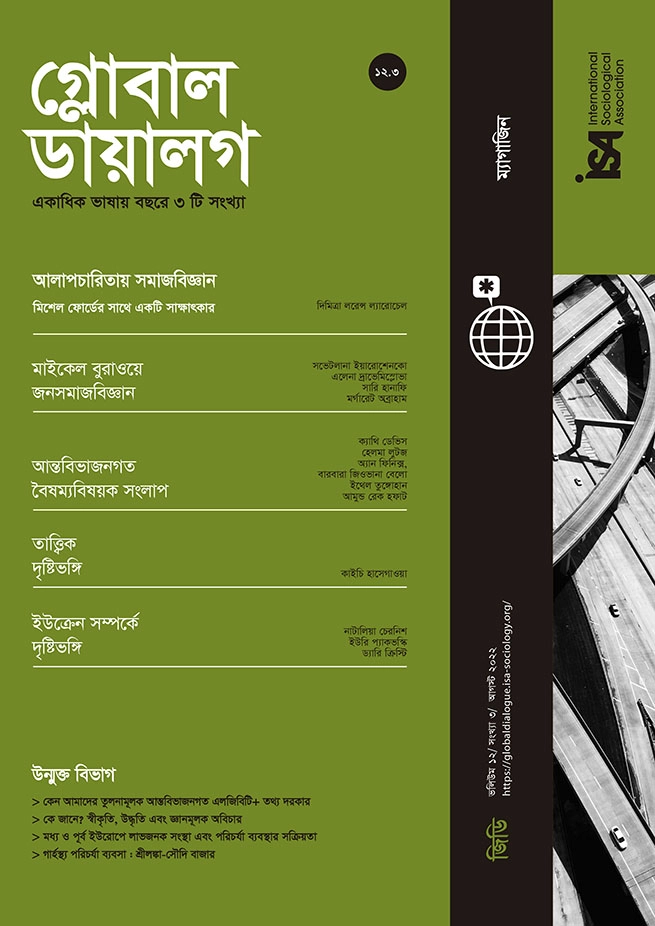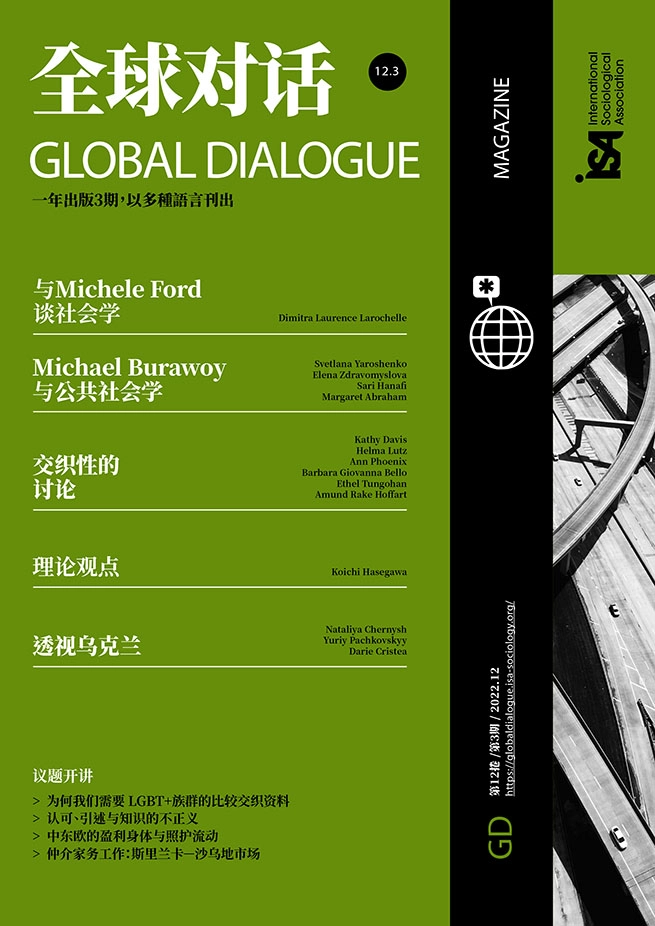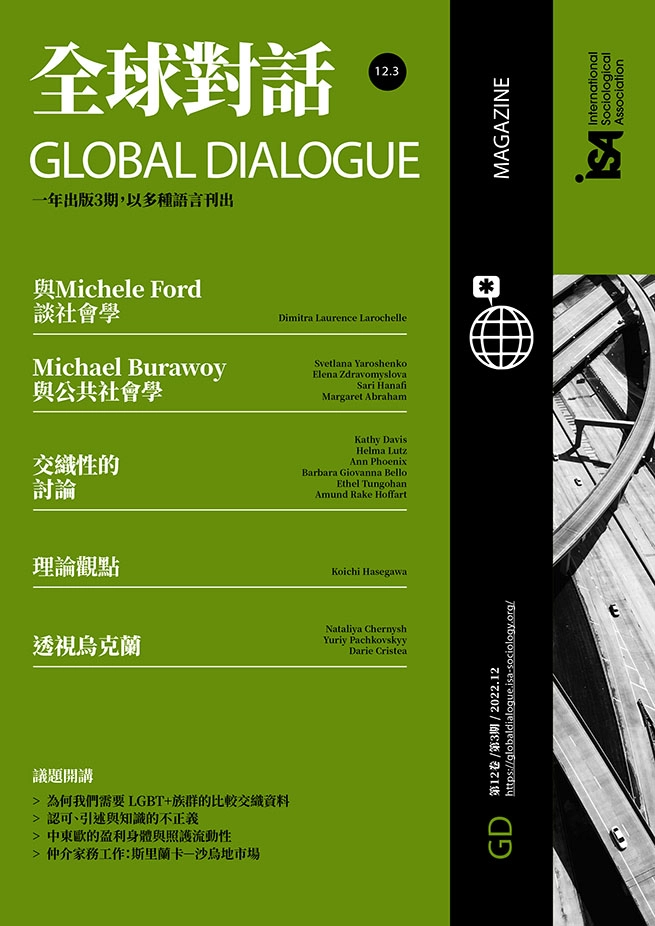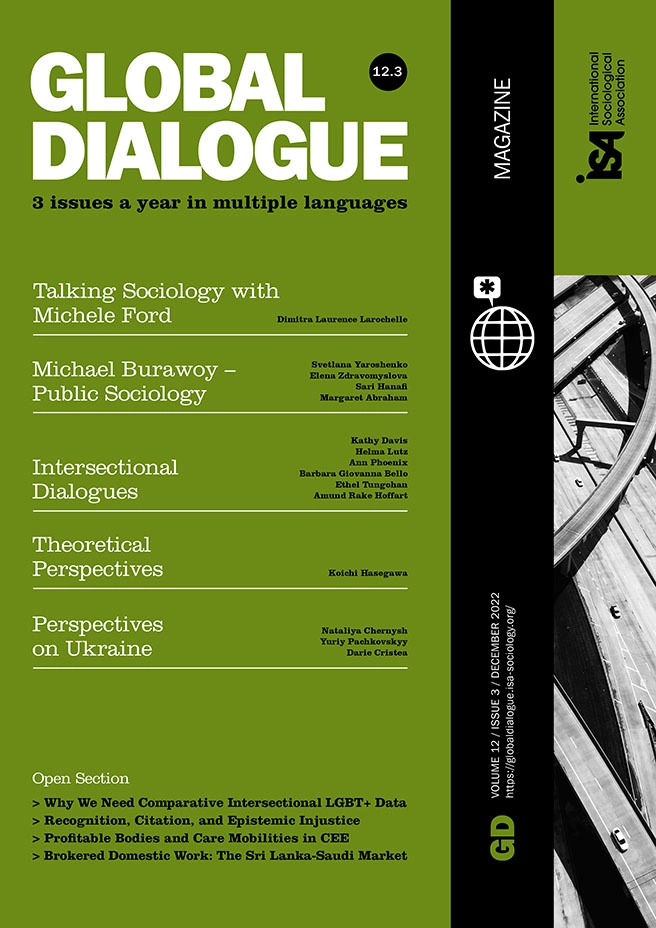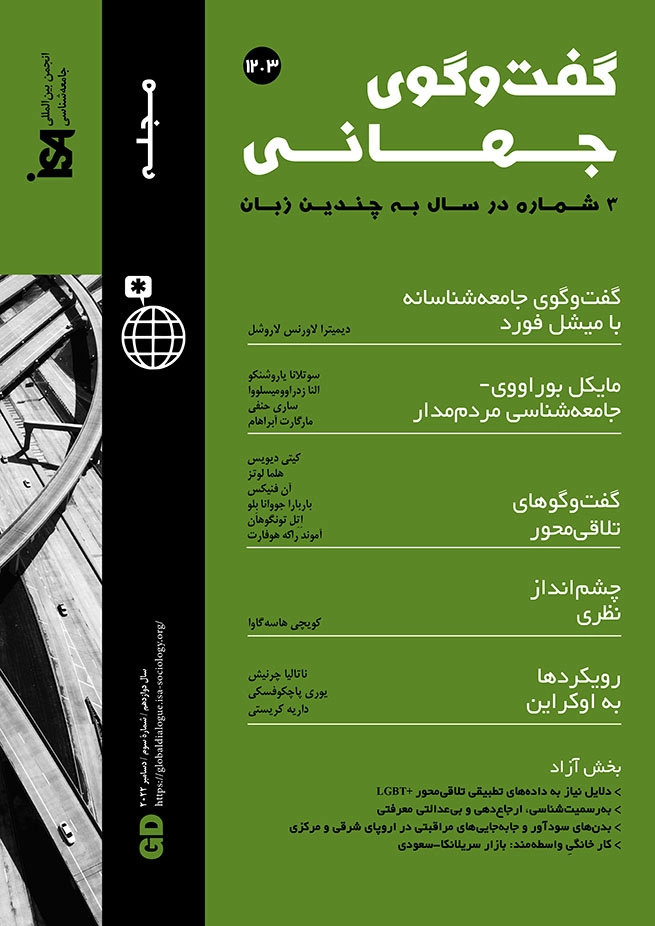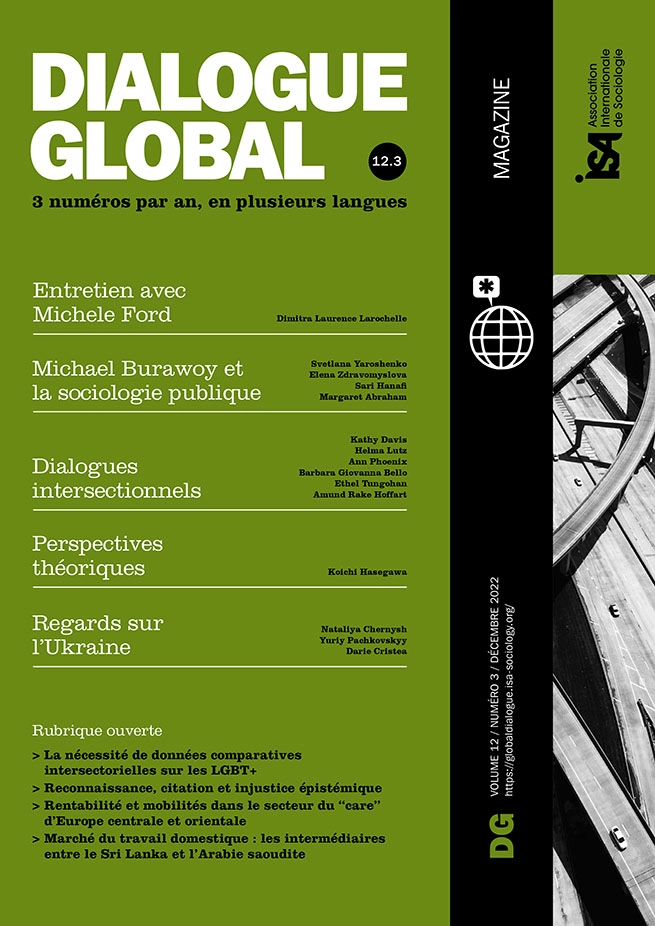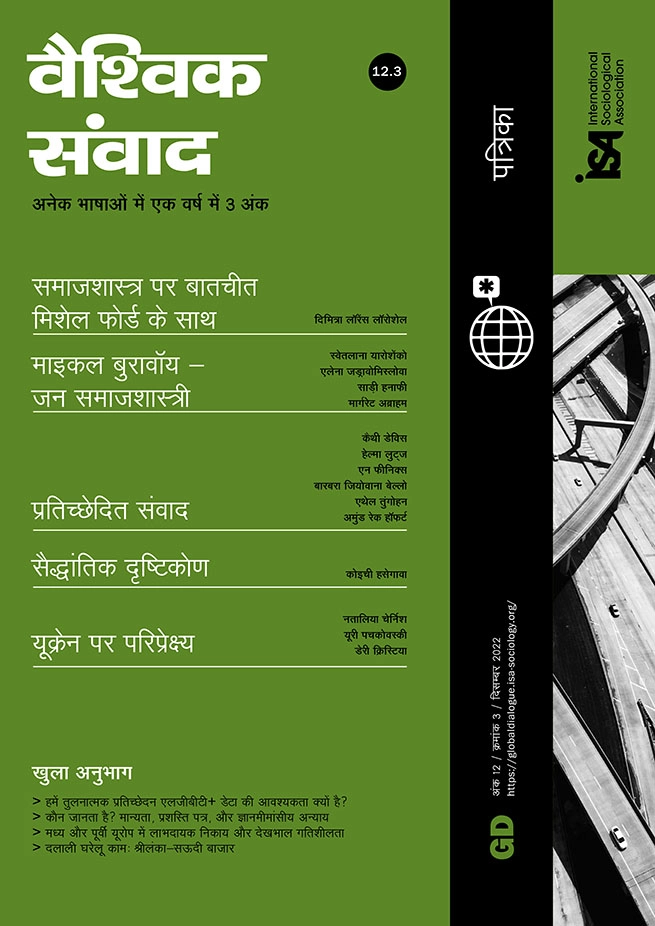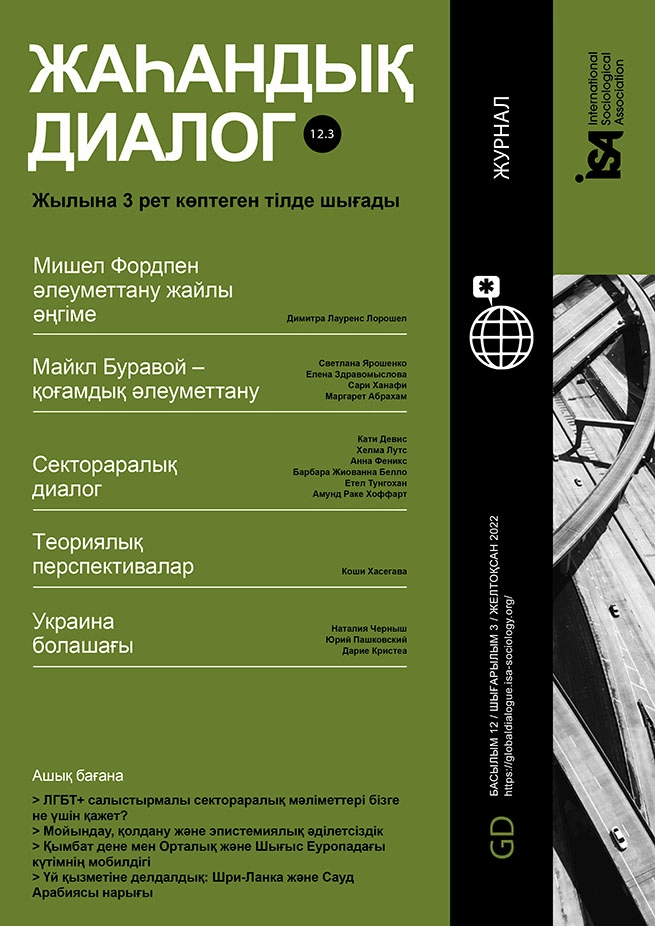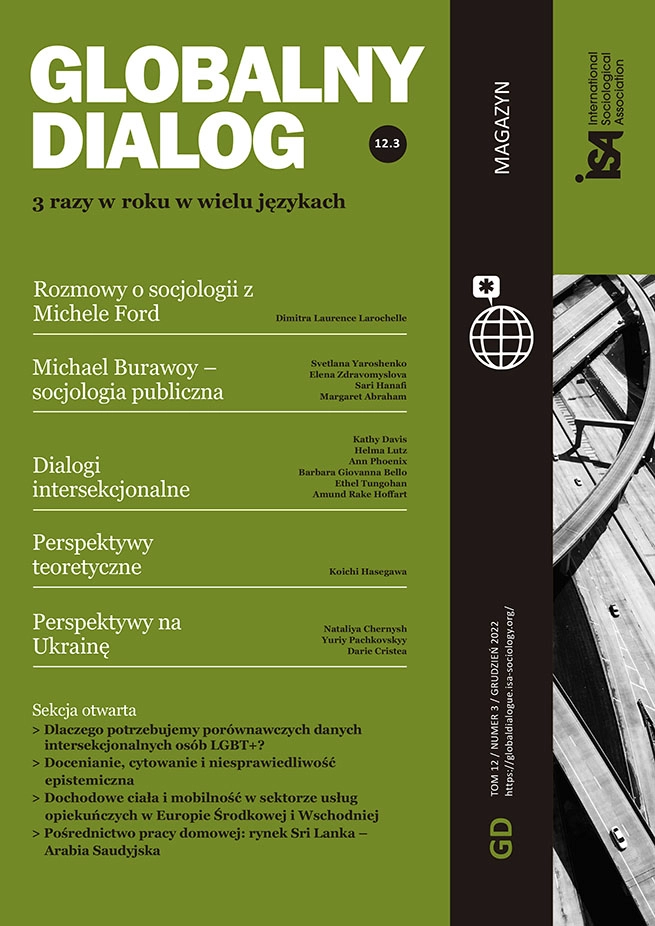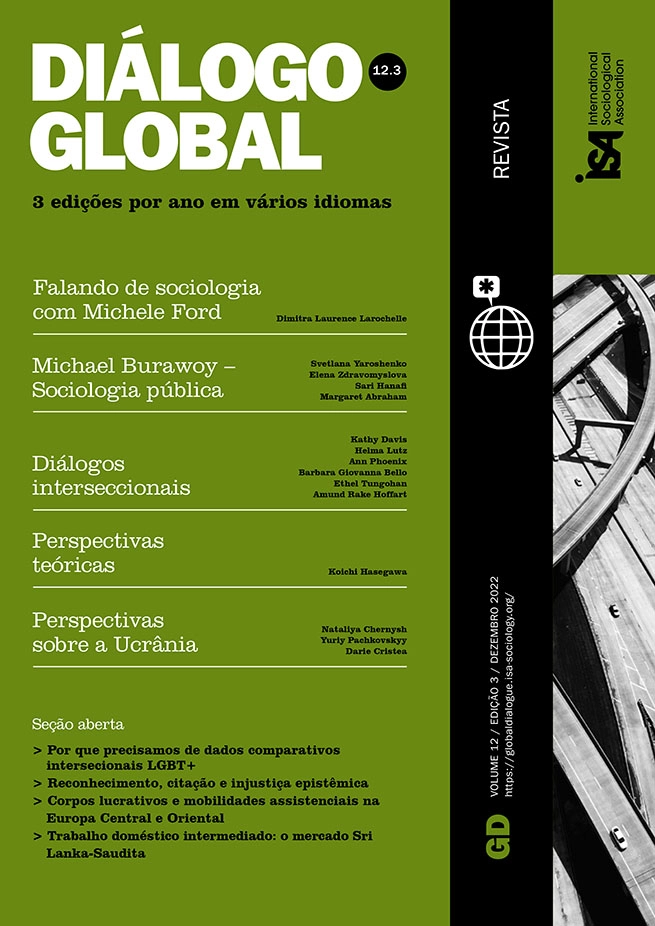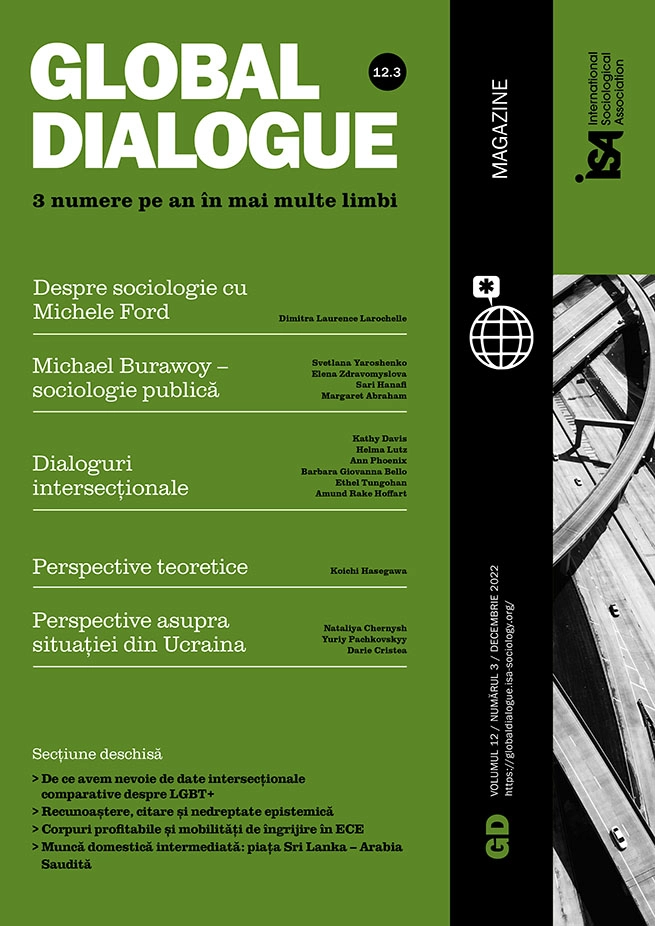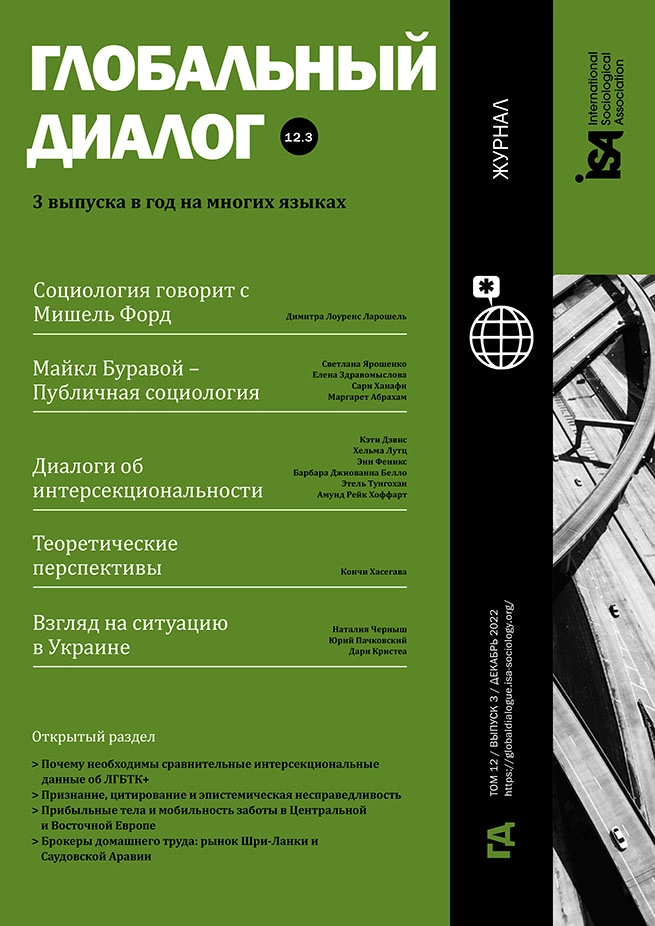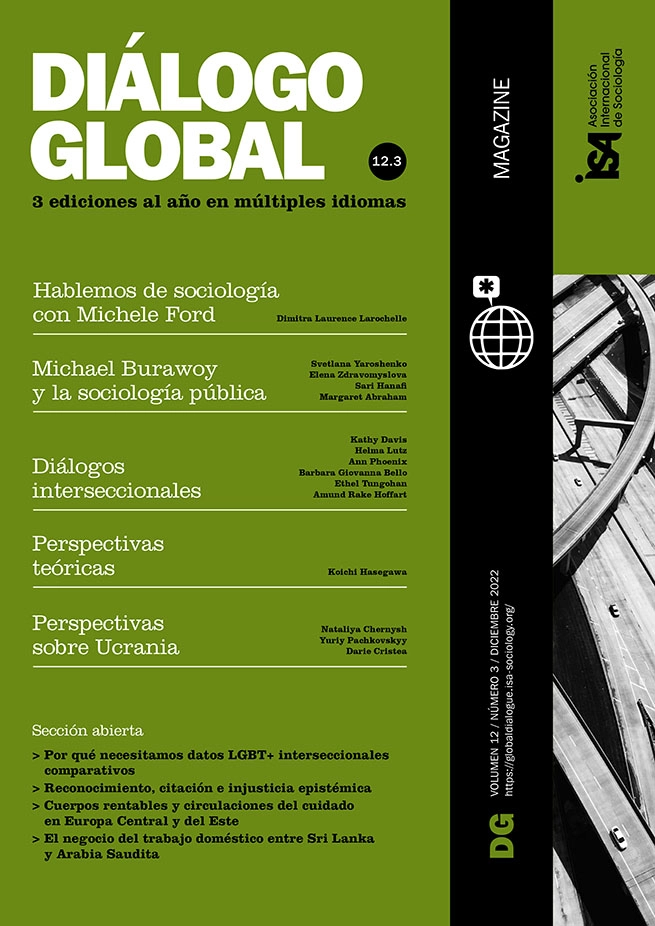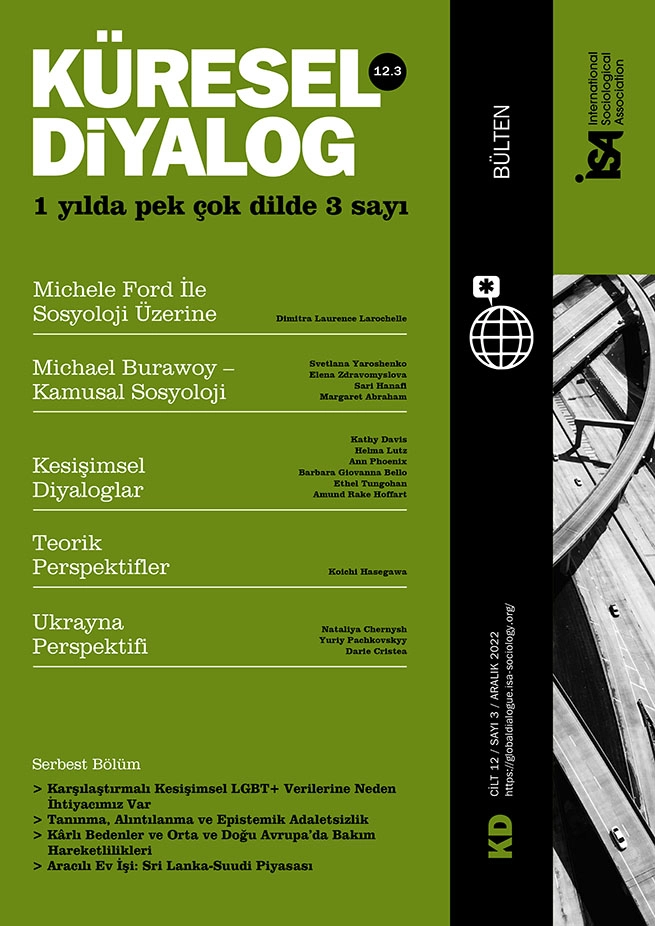Acting Globally: Sociologists Defending Labor Rights An Interview with Michele Ford
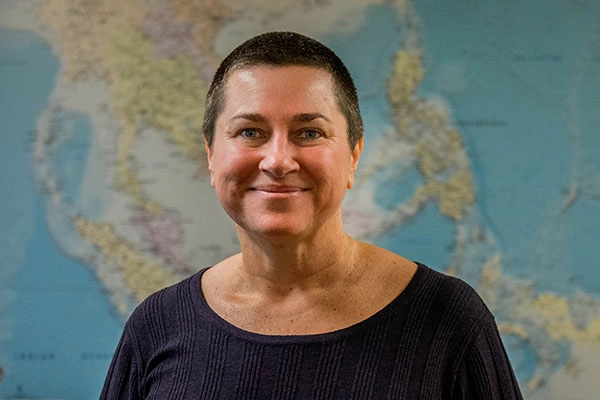
October 03, 2022
Professor Michele Ford is Director of the Sydney Southeast Asia Centre, Australia. Her research focuses on Southeast Asian labor movements, the intersection between national and international trade unions, labor migration, and the engagement of labor in the political sphere. Her work has been supported by a number of Australian Research Council (ARC) grants related to these and other topics. She currently leads ARC Discovery Projects on labor relations in Myanmar’s garment industry and in Indonesia’s commercial fishing industry, and an ARC Linkage Project on trade union responses to gender-based violence in Cambodia’s construction industry. In addition to her academic work, she has been involved in extensive consultancy work for the International Labor Organization (ILO), the international labor movement and the Australian government.
Michele Ford is interviewed by Dimitra Laurence Larochelle, a post-doctoral scholar at the Université Polytechnique Hauts-de-France, France. She is Youth Representative at the United Nations for the ISA (International Sociological Association), a board member of ISA Research Committee on Sociology of Communication, Knowledge and Culture (RC14), Associate Editor of Art Style | Art & Culture International Magazine and a member of the editorial board of the international journal THESIS.
D.L.L.: Could you please tell me about your relation with the International Labor Organization? How long have you cooperated with the ILO and in which ways?
M.F.: I first came into contact with the ILO in Myanmar. In 2013, I was doing some work looking at how industrial relations were emerging after the transition there and, as part of that, I interviewed people working for the ILO. Since I also run the Sydney Southeast Asia Centre, I decided that it would be a useful thing to engage institutionally, and run a workshop for unionists, employers and government officials to give them a sense of what other countries were doing around industrial relations. I pitched that idea to the ILO’s office in Myanmar and they were very happy to collaborate. Something like 70 or 80 people, including the Minister and relevant Directors General attended. It was a really good collaboration. After that, some of those people, who have moved on to other roles within the ILO, asked me to do other things. For example, I worked with a colleague of mine on a background paper on the garment industry in eight countries in Asia, which was supported by the ILO’s regional office.
Then in 2019, I travelled to Geneva for some field work with the global unions. Someone at the ILO had seen a book that I’d written on global unions and labor migration and asked me to give a presentation and while I was there doing that, I’ve had some interviews with several people and one of them was the head of the Asia-Pacific desk of the Bureau for Workers’ Activities (ACTRAV). He later commissioned me to conduct research on the workers of the oil palm industry in Indonesia and on digital union strategies in Asia and the Pacific.
The interesting thing is that some of the stuff I published on the ILO has been quite critical, for example on its role in Myanmar but I feel that the people I engage with are actually being quite open to that. I mean, if they were not open, they wouldn’t engage with me. The people I engage with in the ILO have respected my role as a critical friend/outsider. So, I don’t feel like it’s a compromise for me to engage with them. If I did, I wouldn’t do it.
D.L.L.: Could you please tell me how you apply your sociological lens and skills at the ILO? More precisely, could you explain how a sociologist can act within the UN in order to enhance solutions concerning labor-related issues?
M.F.: I think the main thing is bringing an academic lens. We can generate insights that the institution can’t necessarily generate by itself. If you look at the way that the ILO works, it commissions a lot of people to do research. I’ve been given quite a lot of freedom to structure those projects because they’re all background research-oriented projects rather than evaluations. I’ve done a lot of evaluation work for the international union movement, and these have been quite different. In the case of the ILO, there are some questions they want answered, but beyond that they’ve been very open to allowing me to structure the project and that’s where I can bring my academic expertise, right? So, I can decide what kinds of data I need and how it should be collected and how I process it.
When I began, I was concerned that my work might be subject to some censorship, as the ILO has to be sensitive about government perspectives as well as union and employer perspectives – and if there had been, I would have stopped working with them. But I haven’t felt that I’ve had any restrictions. It’s been a pleasant surprise! Maybe that’s one of the reasons they like to get the outside researchers [laughs] – to introduce different voices into the debate.
D.L.L.: You said before that you give critical feedback and that people within the ILO are very open and that you don’t have any restrictions. However, have you met any other challenges? In general, what are the challenges a sociologist might face when working in international organizations? And if you ever encountered any other challenges, how did you overcome them?
M.F.: To be honest, it is not probably something that any organization would like reading [laughs], but the ILO is very bureaucratic. Because of this, they move very slowly. So, for example, on one recent project, they set up a bunch of interviews for me with unions in the Asia-Pacific. I mean, on the one hand that was very helpful. But it would have been quicker for me to do it myself. The bureaucracy takes a lot of navigating. It’s a big organization so when you work with them, you have to deal with their way of doing things. All the mechanics of getting things done… It is very different, for example, from working with an NGO that has a lot of flexibility and a smaller team, so things can get done fast. But it certainly brings advantages too because research that’s done for the ILO carries a certain cachet. It’s a good CV builder. I’m a full professor, so it doesn’t matter that much for me in academic terms, but in terms of credentialing for other kinds of applied work, it’s very helpful to have worked for the ILO.
I think it would be very different if you weren’t an academic, if you were living in consultancy land. For people in those situations, it could be difficult, because the ILO doesn’t offer very good working conditions for consultants, or pay very well! But as an academic, it’s really nice. We do have the opportunity to influence debate, right? These people are making decisions about the programs that the ILO will carry out. It’s a real privilege to have an opportunity to feed into their decision-making processes. That’s a way of applying our academic and intellectual skills to a real-world problem and you might contribute to a really concrete outcome because this is a body that can influence things.
D.L.L.: What do you think the limits of a sociologist’s engagement within the UN are?
M.F.: I think that organizations in the United Nations system are very big organizations with lots of stakeholders. Everything must be very measured politically because of those stakeholders. Also, the ILO has a relatively small funding base. So, in many ways it has to respond to the agendas of its donors. Sometimes it can really facilitate good work, but sometimes good work has to be abandoned because there’s not ongoing funding or, you know, people’s efforts are pushed in a particular direction because of the nature of the donor agendas. In the case of the ILO, there are a small number of countries that fund most of its activities. So, of course that does shape the agenda. That’s not necessarily a negative thing, but it is a limitation to sociologists’ opportunities to have impact.
D.L.L.: Since 2020, we have been facing a global pandemic which inevitably has important consequences on labor and working conditions around the globe. What policies have you promoted to strengthen workers’ rights during the pandemic? Are there any areas that have been overlooked in your opinion?
M.F.: Not so much overlooked, but in terms of some key areas, some of the burning issues at the moment, like the conditions in supply chains. If we look at the garment industry, when COVID hit, there were bottlenecks of logistics and dropping consumer orders. Suddenly factories didn’t have orders anymore. They had to either reduce people’s working hours or get rid of them. In that, brands make a lot of fuss about all the things they do for workers. But then in a time of crisis like COVID, you see how quickly they retreat. A lot of work has been done in the last 20 to 30 years on international labor governance, including through the ILO. But in terms of actually having systems where multinationals who do not do the right thing in terms of labor rights are sanctioned, we’ve got a long way to go.
Obviously, the gig economy is of huge interest to sociologists of work and industrial relations at the moment and in some contexts, it can actually lead to a formalization of work. So, in countries like India and Indonesia, people who were previously informal, now at least have someone they can organize against. But then, on the flip side, of course the platforms are so powerful that it can be a real challenge to maintaining labor rights. It’s encouraging that there are court cases now where delivery drivers’ status as workers is being recognized, but I don’t think the ILO or anyone else really has a good idea yet about how to regulate those forms of emerging forms of work.
Something the ILO has done a lot of work on over the years, which is great, is trying to understand the informal sector work better and this is actually related to the digital platform work. In many ways digital platform work is an intermediate form between formal employment and an informal sector employment. I think that this is an opportunity for us both as sociologists but also as people who want to engage in the real world to try to work out different ways that worker interest can be represented in sectors that aren’t formalized.
I think they’d be my big three. These are not new issues or specifically related to COVID, but COVID has really underlined the problems in those industries. And then more generally, the retreat of the welfare state, and the absence of the welfare state in countries that have never had one in the first place. You know, it’s in times like these where it becomes really clear how deeply that affects individuals. If you’re in Norway or Greece or Congo, life is very different and the impact of something like a pandemic is very different. I think in that way too, it’s a bit of a call to arms to make a case for the reassertion of the welfare state… The pandemic has really emphasized the importance of having a social safety net.
D.L.L.: Do you have any advice for junior sociologists and social scientists who are starting a career in the international field? Do you have any recommendations or information about locating job opportunities?
M.F.: The organizations in the United Nations system are already a big employer in their own rights of junior social scientists, so there are lots of jobs in the system and also in the other kinds of organizations that cluster around the system. In international NGOs and so on, there are also lots of people with PhDs.
If someone’s on an academic path, then I really do think it’s very rewarding to engage with organizations like the ILO. It grounds our research in reality, and takes us out of the micro level. In sociology, it’s very easy to get really bogged down in micro-level research – and that’s important – but it’s nice to be able to articulate that to bigger questions. Looking at how the UN system works helps us generate some of those bigger questions. The answers to those questions may not be the answers that necessarily the system itself wants to hear. But by actually being those engaged but critical voices, I think we have a potential to influence that system itself, but also the groups in society around the world that the system hopes to serve.
In terms of practical stuff, it’s important for junior researchers to get on teams, network within your field, make contact with practitioners, be a good contributor… So that when someone is looking for someone to be involved in the project, they think of you. There’s the networking itself and then there’s proving your worth. Eventually, you become one of the people that people come to.
Michele Ford <michele.ford@sydney.edu.au>

